
Try a burgundy-foliaged Japanese maple in a teal pot like the one at left. The great thing about trees grown in containers is that they are relatively mobile, so you can place them wherever you want.
Container-grown trees provide height in spots where you can't plant in the ground and add drama and permanence where you might normally just grow annuals. But there are a few tips and techniques that can help you keep them growing healthy for years. Although you can plant almost any tree in a container, you'll have the best results with varieties that are naturally small. Find a few good candidates in "Trees to Grow in Containers," below left.
START WITH THE BEST POT To grow a tree in a pot, use a container at least 20 inches in diameter and height. The larger the pot, the better your tree will grow, plus it will be heavier and less likely to blow over. Though I love the look, I avoid containers that narrow at the top-they are hard to pull the root ball out when you need to repot or root prune. Instead I choose a pot that flares out at the top.
This story is from the Issue 171 - June 2023 edition of Garden Gate.
Start your 7-day Magzter GOLD free trial to access thousands of curated premium stories, and 9,000+ magazines and newspapers.
Already a subscriber ? Sign In
This story is from the Issue 171 - June 2023 edition of Garden Gate.
Start your 7-day Magzter GOLD free trial to access thousands of curated premium stories, and 9,000+ magazines and newspapers.
Already a subscriber? Sign In

Spinach - Learn the secrets to growing this tasty green in spring and fall.
If you're one of those gardeners who can't wait to get started in spring and hates to throw in the trowel in fall, spinach is the perfect shoulder season crop. This mild, earthy-flavored green comes in many varieties, ranging from crinkly-leafed savoys to slightly textured semi-savoys and the flat, smooth-leafed types. Colors can be dark green, light green and even red-veined. Here's how to get the most of it every year.
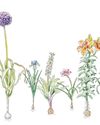
Why Bulb Depth Matters - Dig deep enough to ensure your plants stand tall and live the longest
When you're planting bulbs, it's tempting to just dig a hole as deep as your trowel will reach easily, nestle the bulb in, cover it up and move on. But the fact is, each type of bulb will flower best and thrive at a different depth.A good rule of thumb is to plant a bulb two to three times its height. One reason planting depth is important is because it helps to keep the bulbs protected from fluctuations in temperature that happen closer to the surface.
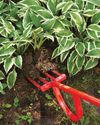
GARDEN ESSENTIALS
FALL GARDEN CLEANUP TOOLS
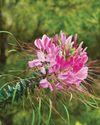
Saving Seeds
Saving flower seeds is a great way to get more plants with almost no investment. It's easy to do. Here's how to save seeds from some of your favorite annuals as the growing season winds down.
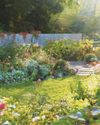
Cucumber Trellis Flop
I watched cucumber trellis growers online for several seasons with envy. What a brilliant way to save space in raised garden beds and make it look fancy! Finally, I was sold and decided to try it in my garden.
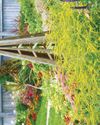
9 Tough Perennials for Clay Soil
Whether you garden in the nutrient-poor red clay of the Southeast, the calcium combined-with-clay caliche of the West or something in between, the common denominator is that clay soil is difficult to grow in. Why? Tiny particles of clay hold tightly together, slowing drainage and limiting the amount of oxygen that can reach plant roots. You've seen the resultsanemic-looking or rotting plants.

Garden Fences
Discover the perfect blend of functionality, style, and materials for your ideal fence.

A GARDEN OF STORIES
Learn plant and project tips from a couple who's been gardening here for nearly 50 years.
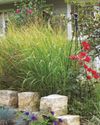
Switchgrass
Adaptable switchgrass goes with the flow.
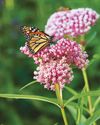
Establish a Monarch Waystation
Did you know that a single monarch butterfly can migrate up to 3,000 miles? That's a lot of ground to cover! This amazing insect makes a fascinating journey, unlike any other butterfly.